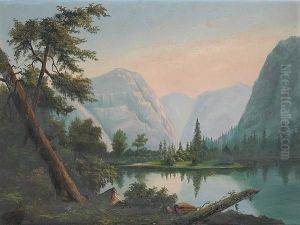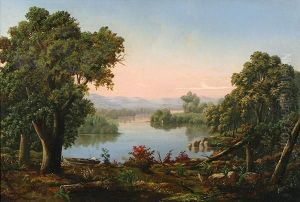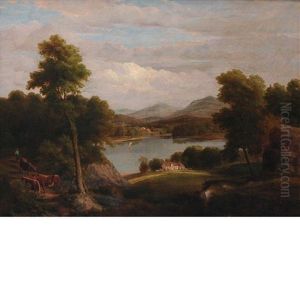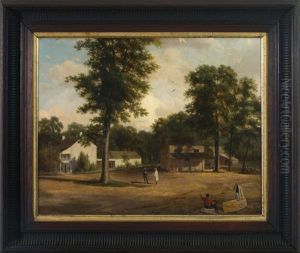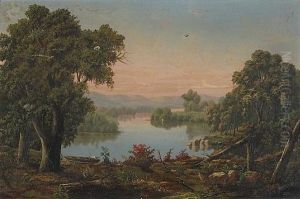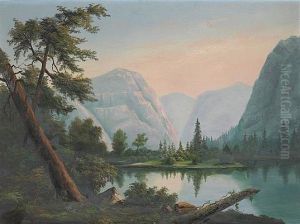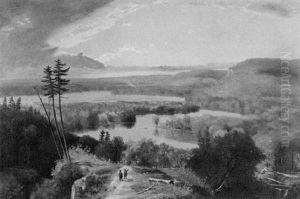Albert Leighton Rawson Paintings
Albert Leighton Rawson was an American illustrator, traveler, writer, and spiritualist, known for his diverse interests and talents. He was born in 1829 in Massachusetts and exhibited a passion for art and culture early in his life. His career spanned various disciplines, including illustration, ethnography, and religious studies, reflecting the eclectic spirit of the 19th century.
Rawson was a well-traveled individual, which greatly influenced his work. He spent a significant amount of time in the Middle East and North Africa, where he studied the languages, customs, and religions of the regions. His travels and studies led to a deep interest in spiritualism and the occult, topics that were gaining popularity during his lifetime.
As an illustrator, Rawson provided visuals for a number of books, particularly those relating to his travels and interests in ancient cultures. His works include illustrations of ancient Egyptian scenes and characters, which were informed by his firsthand experiences and research. He was also involved in the spiritualist movement, contributing to literature on the subject and practicing as a medium. His illustrations often featured themes of mysticism and esoteric knowledge, reflecting his personal beliefs and interests.
In addition to his artistic pursuits, Rawson was a prolific writer. He authored and contributed to a number of books on religious subjects, including 'The Mystic Scroll: A Book of Revelation' and 'Men and Gods in Mongolia.' His writings often explored comparative religion, a field that aimed to understand the similarities and differences between the world's religious traditions.
Rawson was a member of various societies and organizations that reflected his diverse interests, including the American Ethnological Society and the American Geographical Society. He was not only a scholar of religions but also an advocate for the spiritualist movement, which sought to establish the possibility of communication with the afterlife.
Albert Leighton Rawson passed away in 1902, leaving behind a legacy as a man of many interests and talents. His work continues to be of interest to those studying 19th-century American art, spiritualism, and the intersection of culture and religion.
